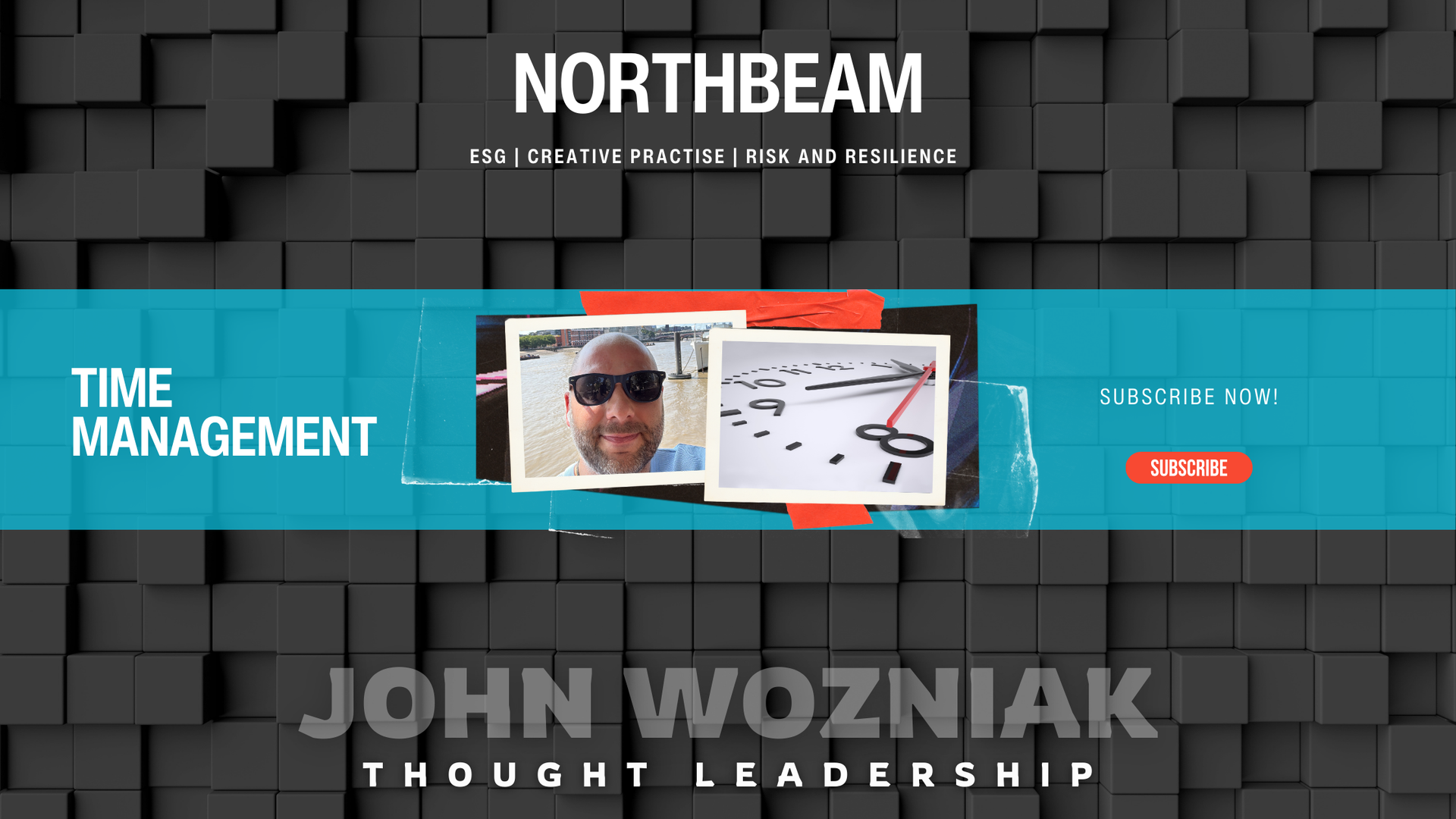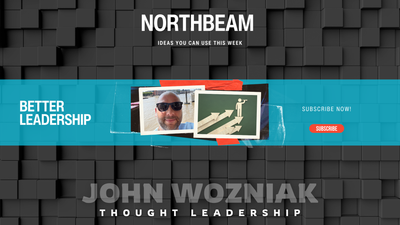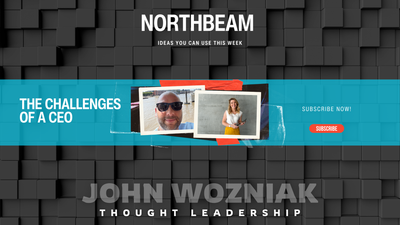Expert Tips in Time Management: Leading The Right Way

Personal story: Heathrow, 2010
It’s mid-February 2010. I’m stood outside in the cold, waiting for my lift to Heathrow. My phone flashes. It’s Pete.
“Hi Pete, is that you coming down the road?”
“No, I’m still on the A1, about 40 minutes away. Slept in.”
“You’re joking, mate. You’ll be stuck on the M25. Latest check-in is 08:00.”
“I’ll do what I can. Crack on and I’ll see you at Terminal 5.”
Pete hung up. What I didn’t know was that he immediately went into panic mode — calling the airline, Heathrow ops, anyone who might help him avoid missing our flight to Dallas Fort Worth. Somehow, he made it. By the skin of his teeth.
I couldn’t believe it. Pete was a senior NCO in the British Army. A professional. A man drilled in discipline and routine. Yet even he fell foul of time.
Welcome back to Northbeam, a place for ideas you can use this week. Each week I’ll share tools from over 32 years in uniform, government and business. This edition is about time management: how to find calm, protect focus, and stop the day running away from you.
Time Managment Lesson
👉 The lesson: time management isn’t about rank or role, it’s about habits. Even the best of us slip, but the consequences are easier to avoid if you build routines that protect you from chaos.
The simple truth about time
In the military we were taught that five minutes early is still five minutes late. It wasn’t about being strict for the sake of it. It was about reducing chaos. The same applies in daily life.
Ask yourself: are you often rushing for the train, scrambling for keys, or sliding into meetings with seconds to spare? Imagine the same morning with just 15 minutes of space, and the night before used to stage your day. Clothes ready, lunch sorted, diary reviewed. These small margins compound into calm.
Scientific research reveals that people's inability to manage time effectively is influenced by a combination of psychological, cognitive, behavioral, and environmental factors:
Key Psychological and Cognitive Factors
- Low Self-Control & Impulsivity: Studies find that poor time management often coincides with low self-control and impulsivity, making it difficult to resist distractions or remain task-focused.
- Cognitive Biases: Brain science highlights several cognitive biases that undermine time management:
- Present Bias/Hyperbolic Discounting: People favor short-term gratification over long-term rewards, leading to procrastination.
- Planning Fallacy: This is the tendency to underestimate how long tasks will take, contributing to delays and inadequate scheduling.
- Decision Fatigue: Continuous decision-making can drain self-control, causing people to delay or avoid effective planning.
- Fear of Failure & Perfectionism: Anxiety about performing tasks poorly can lead to procrastination, where people avoid tasks altogether or spend excessive time refining work.
The Northbeam Focus Cycle
A five-step exercise to start each morning. It takes five to seven minutes.
- Clear — Brain dump everything on your mind. Work, home, errands. Get it onto a page.
- Commit — Choose the top three outcomes for the day. No more than three.
- Calendar — Time-box those outcomes. Protect the blocks like meetings.
- Cut — Remove or delegate one thing. A meeting, a report, a low-value task.
- Check — Gentle reminders only. Let your phone or watch nudge you, not nag you.
Run it after breakfast, repeat after lunch for a reset.
👋 The rest of this post is for Northbeam subscribers.
Paid readers get the full tools: the Northbeam Focus Cycle, the 30-minute daily habit, email resets, workspace hacks, and a printable checklist.
✦ Why subscribe?
Weekly, practical frameworks you can actually use.
Full access to the Northbeam archive.
Support the project and keep these lessons going.
👉 Upgrade to a paid plan today and save 10% with an annual subscription.
The 30 minute habit that changes everything
Evening, 10 minutes
- Review tomorrow’s diary. Cancel what never should have been accepted.
- Pick your top three outcomes for tomorrow (not tasks, outcomes).
- Stage your kit: clothes, bag, laptop, charger, wallet, keys.
Morning, 20 minutes
- Wake 15 minutes earlier than usual. No phone for the first five minutes.
- Scan your top three outcomes. Picture what ‘done’ looks like.
- Short movement routine: stretch, walk, or a few bodyweight moves.
- A glass of water before coffee.
Small, boring, repeatable. That’s the point. Consistency beats intensity.
Decluttering beyond the desk
Clutter isn’t just physical. It’s mental, digital and emotional.
- Information clutter: too many notifications, inboxes, or apps.
- Process clutter: approvals, forms and status checks that add no value.
- Environmental clutter: a workspace that fights your focus.
- Emotional clutter: unresolved tensions, or saying yes when no would be smarter.
Decluttering gives you back attention — the rarest resource you have.
Email without the anxiety
- Check email in windows, not constantly.
- Use the two-minute rule: reply now if you can do it properly in under two minutes.
- Unsubscribe from two low-value lists a day for a week. That’s fourteen fewer distractions.
- Think before hitting reply all.
Use the tools you already have
- Reminders: recurring prompts for habits like the Focus Cycle.
- Calendar: colour code deep work, admin and recovery. Balance at a glance.
- Do Not Disturb: guard focus blocks.
- Voice notes: capture ideas, then triage once a day.
The pocket checklist before you step out
Say it out loud for a week. It becomes muscle memory.
Wallet or purse. Phone. Earphone. Keys and ID. Work kit. Travel card. Water.
Lead yourself first
Time management starts with you. A tidy morning, fewer distractions, and three clear outcomes a day build a foundation for calmer weeks. When you manage yourself well, you influence others without even trying.
So, what one time-wasting habit could you cut this week?
Buy me a coffee
Subscribe to our newsletter.
Be the first to know - subscribe today






Member discussion